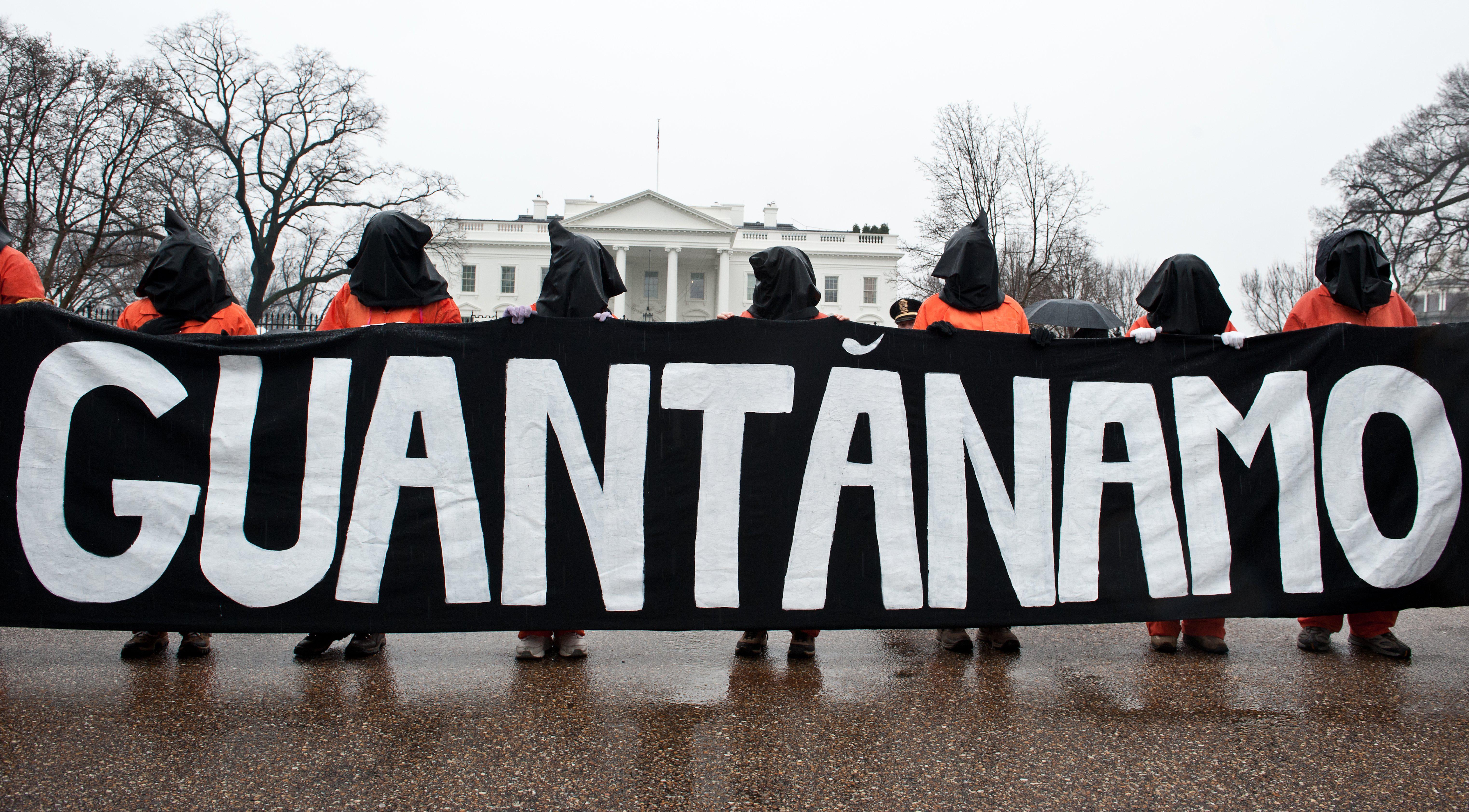Separate decisions this week in the United States and Europe underlined the illegality of Bush-era detainee policy, and also highlighted the degree to which parts of that policy remain in place under the Obama administration.
On Wednesday a U.S. military court overturned the conviction of David Hicks, an Australian who was one of the first people sent to Guantánamo. Hicks, a former kangaroo skinner, spent time with the Pakistani militant group Lashkar-e-Taiba, according to U.S. and Australian officials, attending al-Qaida- run camps in Afghanistan for training. He was captured by the Northern Alliance and turned over to U.S. forces in 2001. In 2007 he pleaded guilty to providing material support for terrorism, one of the few successful convictions of a detainee at Guantánamo. (He had initially been charged with several more serious crimes, but it was never clear to what extent he had actually participated in terrorism.) At the time of his conviction, all but nine months of his seven-year sentence were suspended and he was allowed to return to Australia to serve out the remainder of his sentence in a prison there.
The military commission at Guantánamo recently acknowledged that Hicks’ conviction was never valid, as the U.S. has accepted a guilty plea to a law that was passed after Hicks’ actions allegedly took place. Now, this military court ruling makes is official. The government can appeal, but this is still a striking reversal in the case of a detainee once described as one of the “worst of the worst” by the Bush administration.
Also on Wednesday the Polish government announced that it would pay $262,000 in reparations to two terrorism suspects who had been held and tortured at a CIA-run “black site” prison in the country. The government was ordered to make the payments by the European Court of Human Rights in July but had been contesting the ruling. The two men, al-Qaida operative Abu Zubaydah and accused USS Cole attacker Abd al-Rahim al-Nashiri, are currently being held at Guantánamo, so it’s not clear how they will receive the money or be able to use it. Zubaydah was the first U.S. detainee subjected to waterboarding, and his brutal treatment was described in detail in the Senate torture report released last year. The report also detailed how Nashiri was threatened with a gun and a drill, left in stress positions for days, and told that “his mother would be brought before him and sexually abused” while held in Poland. It was only after the report’s release that Poland’s former president acknowledged that he had knowingly allowed the interrogation center to operate.
The decisions come at a time when Guantánamo and detainee policy are back on the U.S. political agenda. Last week a Republican-led Senate panel approved legislation that would block the transfer of most Guantánamo detainees to either U.S. prisons or other countries for Obama’s two remaining years in office. The president has threatened to veto the legislation, which would repeal the policies that have allowed the White House to reduce the Guantánamo population to 122.
Guantánamo was also the most contentious topic raised during the confirmation hearings for new Defense Secretary Ashton Carter, who will now have the authority to approve or block detainee transfers. (His predecessors on the job, Robert Gates and Chuck Hagel, reportedly pushed back on some of the proposed transfers.)
When New Hampshire Sen. Kelly Ayotte, the sponsor of the legislation blocking transfers, pressed him to pledge that he wouldn’t let the White House pressure him into releasing detainees who may be a threat to the U.S., he replied that he “absolutely” would not. This was interpreted, enthusiastically on the right and worriedly on the left, as a sign that Carter would attempt to obstruct the White House on detainee transfers. (The administration’s current plan is to deplete the population to the point—about 60 to 80 detainees—where keeping it open would no longer make economic sense.)
My guess is that Carter was playing it safe—he couldn’t exactly tell Ayotte he planned to be a doormat—but over the next two years there will still be significant obstacles for the president in the way of fulfilling the pledge made the day after he took office to close the facility. This may have less to do with obstruction from the Senate or the Pentagon than with events in the world. The administration now says the ban on transfering detainees to Yemen, lifted two years ago, has been effectively restored due to political chaos in that country. Nearly two-thirds of the remaining detainees including 47 of the 54 approved for transfer, are from Yemen. Last month the administration did transfer five Yemenis to Oman and Estonia, but finding enough host countries could be a slow and laborious process.
There’s also the issue of the 35 “forever prisoners,” who are deemed too dangerous to release but the U.S. is reluctant to prosecute. The Obama administration has proposed holding these prisoners in a supermax prison in the U.S., but this has been consistently blocked by Congress.
There’s something fitting about the Poland and Hicks decisions coming down on the same day that Jeb Bush began what’s sure to be the long and arduous process of distancing himself from his brother’s national security record without repudiating it. As much as he might want to turn the page, we’re still coming to grips with the practices of the W. era.
